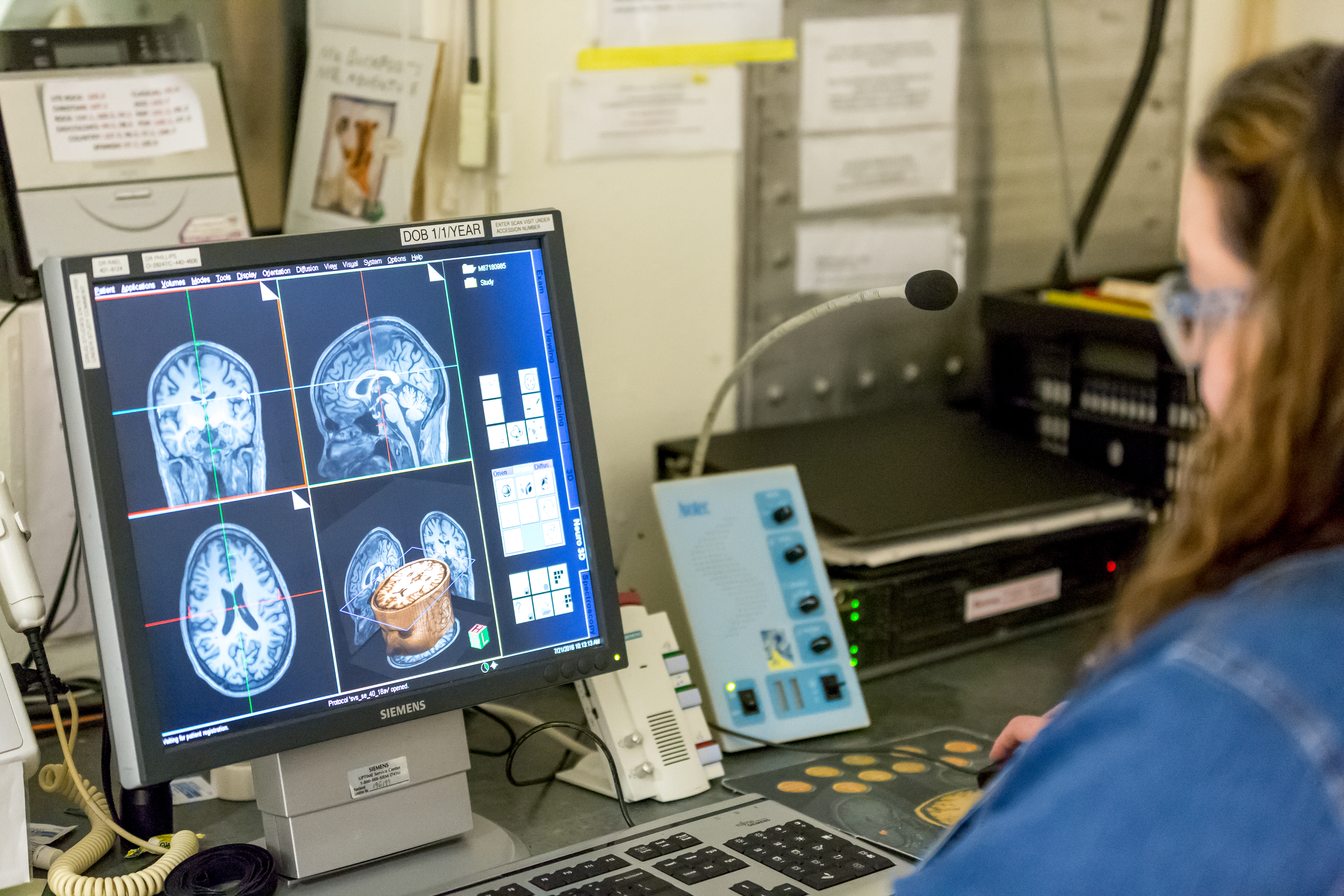Residents who are interested in learning more about research can engage in research experiences that are tailored to fit their individual needs.

The Annual Research Report is used to track and disseminate information on current research activities with the Department of Psychiatry and Behavioral Sciences for faculty and trainees.
Are you interested in a research career? The PST provides continuous, rich and well-coordinated research training during your psychiatry residency to help you become a physician-scientist with specific skills development in
The PST program has six tracks that leverage available resources and mentorship experience in neuroscience, affective and non-affective psychosis, traumatic brain injury, neuromodulation, substance use disorders, and health services research.
The program starts in PGY2 after completion of the USMLE Step 3 examination (typically completed in PGY1). You'll have the opportunity to spend one week in each track and then select a specific focus and mentorship dyad.
If you’re interested in learning more about basic science or translational research, you can also work with faculty in the Mind Research Network (MRN) and UNM Department of Neurosciences.
If the research track isn't for you, but want to learn more, we've got you covered. Please contact the Vice Chair of Research to learn more. You can shadow research faculty, collaborate on research related manuscripts, collect data, develop IRB protocols, and so much more.
Whether you're interested in neuromodulation, psychosis, or improving access to services in rural communities, we've got something for you!
Physician scientists in psychiatry are uniquely poised to bridge the gap between research and clinical practice. Through their clinical practice, physicians in psychiatry learn first-hand about limitations of existing treatments but only physician-scientists have the skills needed to advance the science and increase knowledge towards improving the lives of people with mental illness and/or substance use disorders.
Unfortunately, the number of physician-scientists has been decreasing steadily over the past four decades. This is especially true for psychiatry. The UNM Department of Psychiatry and Behavioral Sciences Physician-Scientist Track aims to help close that gap by providing you with enhanced research training and an environment where research is encouraged and celebrated.
This quick 2-page guide has been developed specifically for our department's residents, fellows, interns and postdocs. Check it out!
The physician-scientist represents the medical-scientific version of the "tripe threat" athlete. Yet in medicine, as in sports, specialization and business are ever more in the forefront. As the field of medicine evolves, it is likely that the roles of the physician, the scientist, and the physician-scientist will continue to change.
For a physician-scientist, going back and forth between medicine and science is natural and almost necessary. Although the future of physician-scientists and especially those from underrepresented minorities is a subject of debate, concern, and reform, our work in medicine and science remains exciting, personally rewarding, and meaningful to society.
Physician-scientists have always brought a unique perspective to biomedical research that is inspired by their personal experience in caring for patients. Indeed, throughout history, physicians have played a central role in advancing the science of medicine as the "translators" of medical research.
This op-ed was written from the perspective of a current MD/PhD trainee trying to strike a work-life balance.
Revitalizing the physician-scientist pipeline is of critical importance to overcoming current and future health challenges.
Vice Chair of Research and Tenured Professor
Annette Crisanti, PhD
Psychiatry and Behavioral Sciences
2400 Tucker Ave. NE
1 University Of New Mexico
MSC09-5030